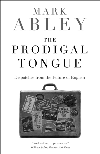
The Prodigal Tongue: Dispatches From The Future Of English
Mark Abley
Random House Canada
$34.95
cloth
260pp
978-0-679-31102-7
The breadth and pace of change are overwhelming, and constantly increasing. But beyond its sheer scope, Abley demonstrates that language change is merely one facet of massive social change, manifesting itself through technology, waves of migration, and slippages of power between classes, communities, and generations. This, of course, is why it’s so fascinating.
It’s not news that teenagers (the use of that word having been first verified in Victoria, B.C., in 1921) tend to be masters of slang creation, although their easy adoption of new modes of electronic communication has turbo-charged that process. Ease of movement (of bodies and information) has increased the impact of languages on each other. In Japan, for instance, English words are adopted, and adapted, producing examples such as operu (cosmetic surgery) and rabu hoteru (love hotel). Okay, no surprise – everyone knows someone who collects anime or manga. But how about hat-ke-i-keu, Konglish (Korean/English) for pancake (think “hotcake”)? Abley leads us all over the map in a highly entertaining and informative tour, with visits to Manglish (Malaysia), Chinglish (China), Singlish (Singapore), and other local variants of “Englasian,” making a point no Montrealer who’s ever eaten un hot dog all-dressed would argue: English belongs to everyone who uses it, not only those of us who think of ourselves as English-speaking.
The Académie Française, Samuel Johnson, Buffy the Vampire Slayer, and Shakespeare (“the greatest coiner of words in English”), as well as the editors of the OED, all play their roles in Abley’s account. The real story often seems to be the conflict between those who hope to preserve social or political power through the imposition of rules of language use, and the inexorable tide of exuberance and creativity of those who use language to express new realities (a recent coinage in Japanese, zenbei ga naita, means “nothing important”; literally translated, it means “the entire United States wept”).
Abley deftly presents a vast amount of information, going far beyond his putative subject, the future of English. He ranges over Chinese text-messaging habits (in 2003 they sent over half the text messages in the world), the vocabulary-generating power of computer culture, Singaporean profanity, and a list of neologisms compiled by Tokyo police who couldn’t understand teenagers. His conclusions are unsurprising, but thoughtful and well supported: that the barrier between the written and the spoken is dissolving, along with physical barriers to communication that used to exist (if all human speech since the beginning of time were available in digital form, it would occupy less space than emails sent in 2006 alone). His view of this tsunami of change is open, generous, descriptive – and often delighted – rather than prescriptive, and well situated in the broad global social and political contexts it demands.
His literary range is wide: he read Riddley Walker, the “Futurist Manifesto,” the King James Bible, and Marshall McLuhan in an attempt to imagine the future of our language. The book itself provides an excellent demonstration of Abley’s conclusion that we ought simply to strive for clarity and exactitude; his poet’s capacity to observe and to beautifully convey his experiences (he observes, following a fireworks display, that “the moon had the sky to itself again”) makes it a pleasure to read. If only he had explained what “blur” means in Singapore – and what Mr. and Mrs. Abley meant by “gone for a burton”!
mRb






0 Comments